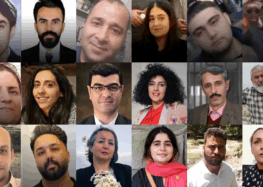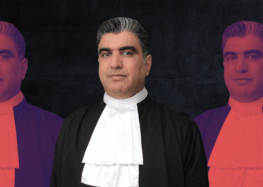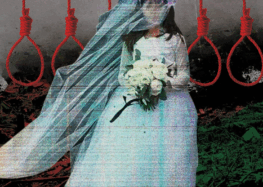Seven Members of the Defenders of Human Rights Center Banned From Traveling Abroad
With the travel ban of Hadi Esmaeelzadeh, a member of the Defenders of Human Rights Center, currently seven members of this human rights organization have been barred from leaving Iran. Some of the other members of the organization who have been banned from traveling abroad are Abdolfattah Soltani, Mohammad Ali Dadkhah, Nasrin Sotoudeh, Mohammad Seifzadeh, and Narges Mohammadi. Security and judicial authorities have told some members of the Center that when the 2003 Noble Peace Laureate Shirin Ebadi who heads the organization returns to Iran, she too will be barred from traveling abroad.
Limitations on foreign travel are defined in Article 133 of Iranian Procedures for Criminal Prosecution: “taking into account the weight of the evidence underlying the charges brought against the accused, a court can … issue an order to ban the accused of traveling abroad.”
None of the above- mentioned individuals have had any cases which could lead to their travel ban. A source close to Defenders of Human Rights Center told the International Campaign for Human Rights in Iran: “Travel bans on prominent lawyers who accepted pro bono human rights cases and defended political prisoners and journalists and others who had no means to a fair trial because of security and judicial policies, is a completely political and illegal move. This move’s only objective is to put pressure on human rights defenders and to suppress political and social activists and lacks judicial basis.”
Background:
The Defenders of Human Rights Center was sealed off after it was stormed by security forces on December 22, 2008. In a December 24, 2008 letter to Iranian government, the UN Deputy High Commissioner of Human Rights expressed deep concern over received news about the attack on Center, which is under Ms. Ebadi’s management. The Deputy High Commissioner wrote to Iranian authorities again on January 3, 2009, expressing further concern about reports of attack on Ms. Ebadi’s residence, asking the Iranian government to guarantee free activities of the Center for Defenders of Human Rights, without intimidation, abuse, or mistreatment. The Deputy High Commissioner also asked the Iranian government to order immediate re-opening of the Center for Defenders of Human Rights offices in Iran, and to guarantee the organization’s legal standing, and to return all documents and items which had been removed from Ms. Ebadi’s legal practice. On January 4, 2009, the Secretary General asked for immediate action to guarantee the health of Ms. Ebadi in order to prevent further abuse and mistreatment.
On January 5, 2009, Iranian authorities replied to the High Commissioner on Human Rights Office, saying that the Defenders of Human Rights Center had applied for an initial permit for establishing the Center, but had been unable to provide the requisite 52 documents in support of the application, required by law. The authorities stated that they had sent a letter to the Center about this in August 2007 and pursuant to a lack of compliance, the Prosecutor’s Office had issued a legal order for closure and sealing of the Center. The authorities indicated that Ms. Ebadi and her colleagues were able to complete their legitimate legal actions. Frequent meetings, statements and foreign travels of Ms. Ebadi and her colleagues, such as trips to Geneva, are explicit manifestations of the organization’s rights, especially under the UN Covenant on Civil and Political Rights, as documented, for example, in the report on “Conditions of Human Rights in Islamic Republic of Iran.” http://persian.iranhumanrights.org/1388/07/unsgreport09/






